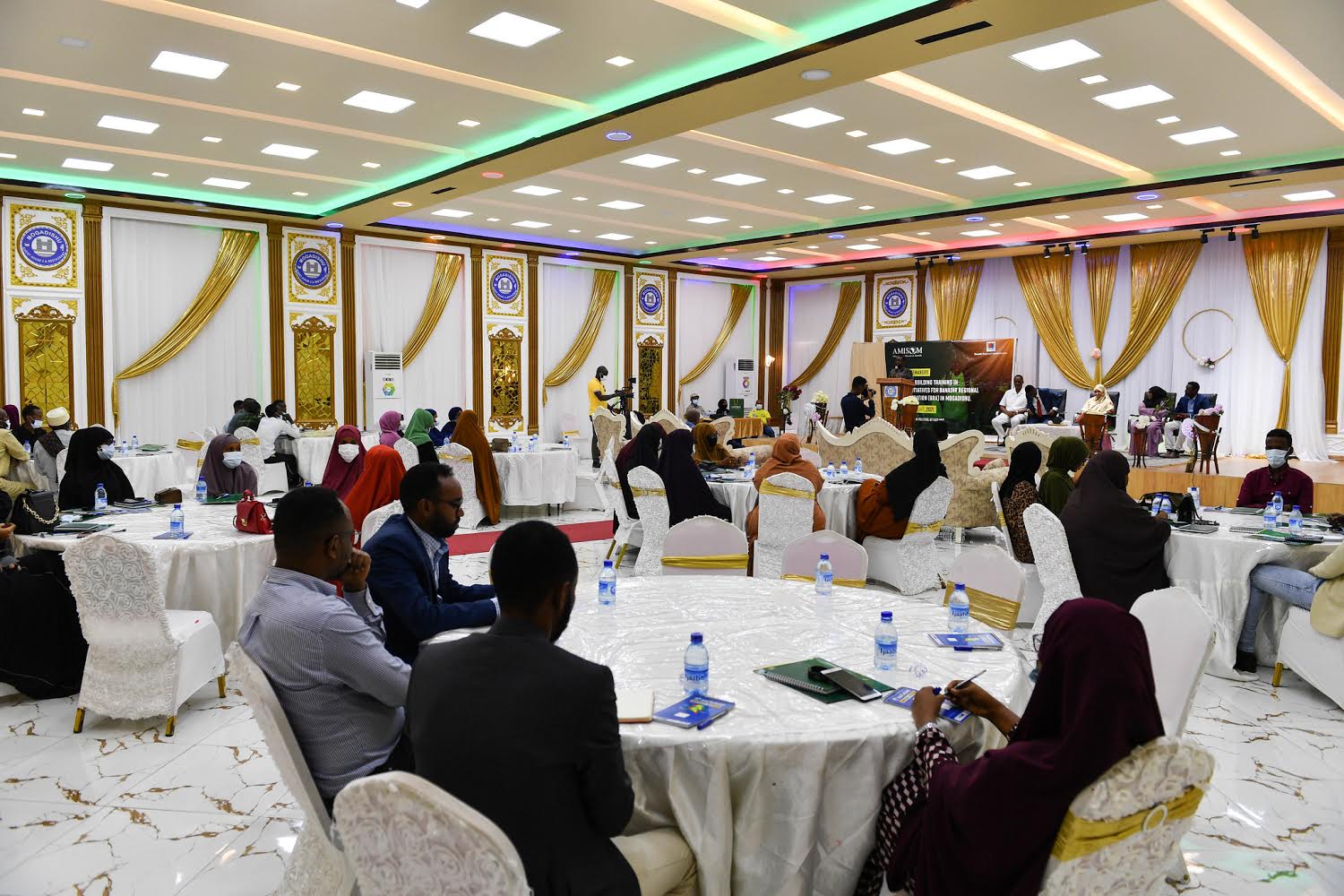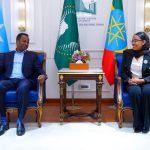Mogadishu:-peacebuilding and conflict resolution dialogue opened in Mogadishu yesterday with the aim of fostering cohesion and stability between local communities in Mogadishu and the surrounding regions, notably Afgoye, Warsheikh and Bal’ad districts.
Focusing on conflict dynamics, conflict resolution mechanisms, the psychology of peace, managing intra-state conflict, negotiations in peace processes, role of media in peace-building, transformation and reconciliation, the five-day training is facilitated by the African Union Mission in Somalia (AMISOM) Political Affairs Unit in collaboration with the Conflict Resolution, Stabilization and Peacebuilding Unit of the Banadir Regional Administration (BRA).
Attended by clan leaders, youth representatives, women’s groups, key members of the community and local government officials, the dialogue was officially opened by Basma Amir Sheketi, the Deputy Mayor of Mogadishu and Head of Social Affairs.
“The training you are receiving here is on behalf of the three million people living in and around Mogadishu so that you can go back to educate them, and each other, on what peace is,” Sheketi told the participants.
“We need to genuinely forgive each other in order to rebuild our country and unite our people. It is our responsibility to foster unity and peace. Each one of us here needs to go back to our communities to kick start the reconciliation process by resolving any conflicts within our families and within our neighborhoods. It is by doing so that we will be able to reconcile our country,” she added.
Ahmed Mohamed Asayr, Coordinator of the Conflict Resolution, Stabilization and Peacebuilding Unit at the Banadir Regional Administration said the administration’s long term objective for Mogadishu residents to be active participants in the country’s peace process.
“Once you train 50 people and each of them take the message of peace to a minimum of five persons amongst their cycle of friends and family, the impact will be huge. We need the message of peace to reach all the people so that we can finally get peace in Mogadishu and in our country through genuine reconciliation and forgiveness,” he added.
Sayid Ali Hirsi, AMISOM Political Affairs Officer, said ahead of the upcoming national elections, it was important for the people of Mogadishu to champion peace and reconciliation as the city and its residents will have a heightened important role to play in the peace process.
“AMISOM’s main mandate during elections is security. As such, we hope this training will advance election security and also help in the implementation of the Somalia Transitional Plan through having citizens who are prepared to take a leading role in building peace in Banadir and nearby districts,” Sayid said.
At the training was elder Mohamed Sheikh Mohamed Abdirahman, who urged that as many people as possible are trained in peace building initiatives and reconciliation. He also said that it was necessary to build the capacity of elders in conflict resolution mechanisms because they play an important role in settling disputes that arise within communities.
“Through this training, I now know that there are many elements to a conflict and that each element might need a unique approach in resolving it. Importantly, we have to respect differences in opinion so that such differences do not end up in conflict. Where we disagree, we can always resolve our disagreements amicably,” Abdirahman said.
Through facilitation by AMISOM’s Political Affairs Unit, the training is expected to help create cohesion among communities by identifying and dealing with the factors that undermine peace. With use of expert facilitators with a proven track record in conflict resolution, mediation and reconciliation, the five-day training is expected to produce a set of priorities and plans of action on peace and security for communities to consider in the quest to forge unity and cohesion.





